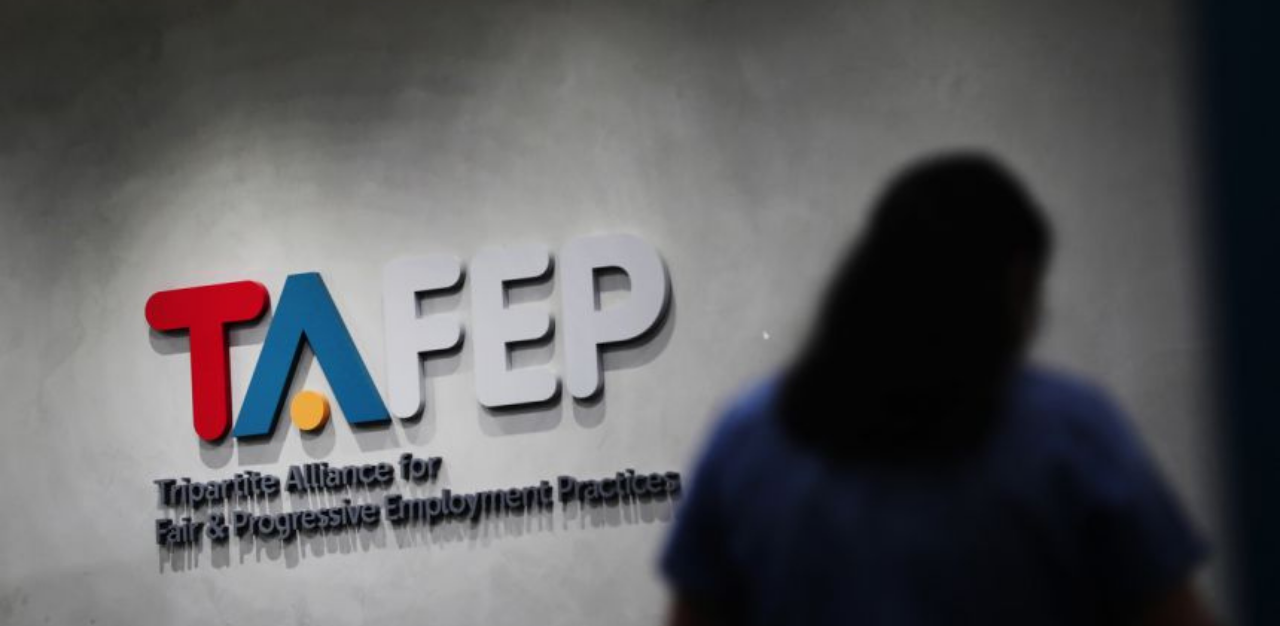It was just last year when Labour MP Patrick Tay suggested that the Tripartite Alliance for Fair and Progressive Employment Practices (TAFEP) be given “more teeth and bite” through expanded powers to investigate, enforce, and even mete out punishments on errant companies.
He believes that in doing so, it can help address the fairness and localisation of professional, manager and executive (PME) jobs.
In Singapore, non-governmental organisations that protect the welfare of employees, consumers’ interests, and even animals seem to lack enforcement or legislative powers. People turn to these national “watchdogs” when they are being compromised by unfair practices or when they see animals being abused. So why are these watchdog unable to enforce prohibitive measures or punishments?
Often the police need to step in. Now if these operations lack teeth to deter unfair or discriminatory practices, or even abuse then why are they set up in the first place?
CASE: A watchdog or a lap puppy?

In the public eye and to critics, the general impression of the Consumers Association of Singapore, popularly known as CASE, is that it is “all bark and no bite”. This came to head in 2014 when netizens shared news on social media about a mobile shop in Singapore that made a few mean moves on its customers.
First there was the Commonwealth Games diving gold medallist from Malaysia who paid more than S$4,800 for an iPhone 6 and an iPhone 6 Plus, which together would have normally cost about S$2,500.
Two weeks later, a Chinese national who took another Sim Lim shop – the now notorious Mobile Air – to the Small Claims Tribunal got the refund of S$1,010 that she asked for, but in an 18kg plastic bag of coins.
What really riled Singaporeans was when a video of a Vietnamese tourist who was reduced to begging on his knees for a refund at Mobile Air, went viral on social media. Since the Consumer Protection (Fair Trading) Act was passed in 2004, all CASE could do was invite errant retailers to sign an agreement to not engage in unfair trade practices and even to agree to refund money to aggrieved consumers, which was exactly what it did. It resulted in people calling consumer protection in Singapore “a joke”.
But in a 2017 interview with TODAY online, outgoing executive director of CASE Seah Seng Choon said he did not think CASE needs to have legislative powers to protect consumer rights, noting that Spring Singapore, which administers the Consumer Goods Safety Requirements as the safety authority, already has the powers to investigate, stop the sale of, or ban unsafe general consumer goods from the market.
He was convinced that CASE has come a long way since the early 2000, saying, “Consumers were not quite educated back then when I first joined CASE in 2002 (as executive director). They were not fully aware of their rights to redress, to seek compensation. But now, they know their rights better.”
When TheHomeGround Asia approached CASE, it declined to comment on this article.
But in January, CASE released the latest consumer complaints data for 2021. A total of 15,515 complaints were logged last year, down 15.3 per cent from the 18,335 complaints in 2020. Only 3 in 5 of those cases were resolved.
The current president of CASE Melvin Yong said then that the watchdog will continue to engage the Government and industry stakeholders to strengthen consumer safeguards and stamp out unfair practices in a timely manner.
TAFEP: Working to eradicate workplace discrimination, but is it a paper tiger?

Set up in 2006 by the tripartite partners Ministry of Manpower (MOM), National Trades Union Congress (NTUC), and Singapore National Employers Federation (SNEF), the Tripartite Alliance for Fair and Progressive Employment Practices (TAFEP) promotes the adoption of fair, responsible and progressive employment practices.
In a written parliamentary response last September, Minister for Manpower Tan See Leng said TAFEP has received an average of 379 workplace discrimination complaints each year between 2014 and the first half of 2021, of which two-thirds of reported cases were not substantiated.
Adding, a TAFEP spokesperson says the majority were misunderstandings which had been clarified and where both parties did not pursue the matter further.
About one-third of the employers found to have discriminatory practices were referred to MOM for further investigation. Out of these complaints, an average of 41 employers a year were found to be in breach of the Tripartite Guidelines on Fair Employment Practices (TGFEP) and had their work pass privileges suspended.
According to the spokesperson, TAFEP and MOM have stepped up efforts in recent years to tackle workplace discrimination and build more progressive workplaces through the adoption of a two-pronged approach of education and enforcement.
While legislation and penalties are still enforced by MOM, TAFEP conducts workshops and clinics to help employers better understand the Tripartite Guidelines on Fair Employment Practices (TGFEP) and how to implement fair and merit-based employment practices.
On enforcement, MOM had begun to impose stiffer penalties against all forms of discriminatory hiring practices since January 2020. For instance, errant employers are barred from hiring new foreign workers or renewing existing ones for 12 to 24 months, up from the minimum of six months previously.
While MOM is the one enforcing penalties, TAFEP assures that all cases reported to it are handled “sensitively and responsibly”.
Its spokesperson says when investigating reports on workplace discrimination, TAFEP will determine if the employer has fulfilled its obligations under the TGFEP or Fair Consideration Framework (FCF). The investigation process involves scrutinising the employer’s hiring processes and existing HR practices. These employers will also need to provide evidence to show that they have hired fairly.
In this manner, one can view TAFEP as “the first point of contact and investigator for workplace discrimination”.
Apart from discrimination cases, TAFEP also provides advice and assistance to employers and affected individuals on workplace harassment. For workplace harassment cases that are substantiated, TAFEP will work with MOM to take enforcement actions against companies that fail to provide a safe environment or refuse to improve their grievance handling.
TAFEP spokesperson says that Tripartite Committee on Workplace Fairness has taken stock of the process made towards enhancing workplace fairness and recognised that legislation could be a helpful next step to take. It will continue the next stage of its deliberations, to define the scope of future legislation and design a legal framework that is in the best interest of Singaporeans.
“With TAFEP’s guidelines being enshrined into law, the new legislation will also help to expand the range of actions that can be taken against employers with discriminatory practices,” the spokesperson adds.

Associate Professor Steven Ang of the Division of Business Law at the Nanyang Technological University (NTU), says that it would not be fair to describe TAFEP as toothless.
Dr Ang says that it is true that TAFEP “neither makes what may properly be called laws nor directly enforces the norms and standards it espouses”.
He says TAFEP is “different from SPCA Singapore and CASE in that it is an alliance comprising and supported by the government, unions (NTUC) and the employers’ federation (SNEF)”. Through its constituent partners, it has a fair influence on how employment regulations work.
For instance, TAFEP sets non-legal standards like guidelines on what constitutes fair work practices. Sometimes, these can be developed or incorporated by the State via legislation to become laws. Even if not enshrined in law, these guidelines may have an indirect impact in two additional ways.
Firstly, when they are taken into account by officials, like the Employment Tribunal, in deciding what constitutes the legal standard of ‘wrongful dismissal’ or a dismissal without just cause or excuse under S14(2) of the Employment Act. And secondly, when MOM considers matters for approving employment passes or work permits for foreign employees and workers of certain firms.
“Laws are not the only norms for society and non-governmental bodies like TAFEP have an important Civil Society role in helping to develop the public norms by which our regulations are understood and work,” he adds.
Associate Professor Dennis Ong, from Business Law at NTU agrees.
“The tripartite alliance is a powerful partnership between MOM, NTUC and SNEF and their collaborative efforts of balancing the interests of government, employers and employees have been instrumental in helping employers and employees work together in the face of the challenges at the workplace brought about by the pandemic,” he says.
“Even if it’s true that TAFEP is toothless, a toothless tiger is still a fearsome animal”
Our protector of animal welfare – all bark and no bite?

In the domain of animal welfare and prevention of animal cruelty, the Society for the Prevention of Cruelty to Animals (SPCA) is top of mind for pet owners and animal lovers.
Established in the 1800s, SPCA was founded to prevent cruelty and promote active kindness towards animals. While society has evolved and the world of animal welfare has changed over the years with many animal welfare groups sprouting all over the island state, SPCA’s mission and vision remain the same as they strive to build a compassionate Singapore where animals are treated with kindness and respect.
The SPCA runs various animal welfare services including a 24-hour emergency rescue service, cruelty investigations, an adoption and rehoming programme, education outreach, reuniting lost pets with owners, sterilisations for community animals, and a shelter for over 200 unwanted, abused or abandoned animals every month.
In recent times, the SPCA has founded Singapore’s only community animal clinic and partners authorities and other animal welfare groups to support the Trap-Neuter-Release-Manage programme that allows for more community dogs to be sterilised so that the community animal population can be managed.
While “SPCA continues to enhance and expand its services and channels of outreach to be relevant to current animal welfare issues”, its Executive Director Aarthi Sankar acknowledges that SPCA does not have any enforcement powers and cannot take legal action against animal abusers.
“SPCA Singapore is a non-governmental animal welfare charity that relies primarily on public donations. The SPCA does not have legal powers to prosecute offenders. Under the Animals and Birds Act, only governmental authorities can take action with regards to cruelty cases,” the executive director says.
“Cases are also referred to the authorities as they have enforcement powers and any relevant information we have is passed to them,” she adds.
With its status as a non-governmental animal welfare charity, SPCA lacks the legal powers to enforce punishment on offenders. Because of this, they are often not privy to the number of cruelty cases as they are managed by government authorities.
However, this does not mean that they are unable to prevent animal cruelty from happening. SPCA has always endeavoured to work closely with the enforcement authorities to follow up on cruelty cases to ensure they are addressed. In extreme cases of animal cruelty, SPCA will assist or follow up in police investigations by arranging official post-mortems reports and preliminary veterinary reports when necessary.
“SPCA actively conducts its own investigations, provides active input and relays key information to the authorities. We also conduct welfare checks and audits from time to time,” Ms Sankar says.
TAFEP, SPCA, and CASE serve significant roles
Although these organisations are not given enforcement or legislative powers, the work that they do cannot be denied of its importance.
Assistant Professor Charlene Chen from the Division of Marketing at the NTU’s Nanyang Business School thinks they should not be given enforcement or legislative powers – those should remain within the police and prosecution.
“They are meant to be advocates for welfare in these domains, organisations that people can approach when their welfare is being compromised by unfair practices,” she says.
“I think these organisations serve the powerful role of having expert knowledge related to the laws in their respective domains,” she adds.
Instead of assessing their legitimacy based on whether they have enforcement powers of not, Dr Chen says that they should seek to raise their credibility as advocates and bridges to the government authorities by publicising their role in this process of helping individuals seeking redress (investigative assistance, providing legal advice, linking individuals with other welfare agencies) and their participation in the crafting of legislation, policies, and recommendations for firms, organisations and government bodies. Collaborations with the government will enhance their legitimacy even though they do not have the right to enforce or prosecute, she says.
“I don’t think they are toothless at all. They serve important roles that need to be publicised. They need to emphasise the gaps they fill which government authorities cannot fill or are inadequate in filling,” she adds.
Join the conversations on TheHomeGround Asia’s Facebook and Instagram, and get the latest updates via Telegram.














